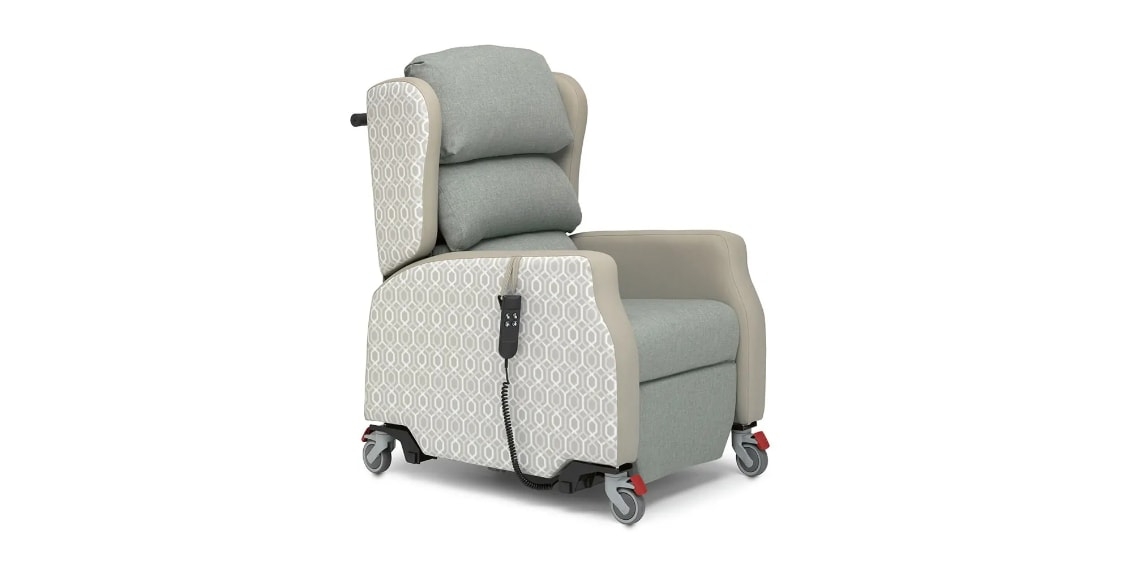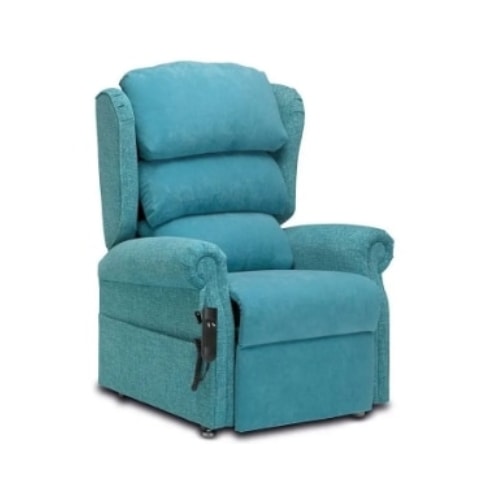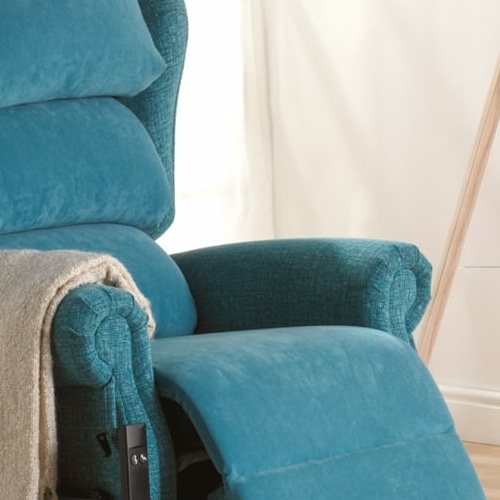Healthcare Chairs Can Spread Infection & Here’s How To Reduce It

Hospitals are a hub for dangerous bacteria, including MRSA, which can survive on surfaces and furniture for weeks and clostridium difficile (also known as C. difficile or C. diff), and with the current global Covid-19 crisis, infections can spread via surfaces and objects. These infections are transmitted via contact with bacteria transferred from hand-touch sites such as healthcare chairs and furniture.
Fortunately, most hospitals are now focused on furniture’s impact on sustainability and their role to improve staff and patient safety.
So how do healthcare chairs and furniture spread infection?
- Torn fabrics – Torn fabric portrays not only a bad picture, but it’s also a breeding ground for infections. Torn materials cannot be adequately cleaned, and they allow the entry of microorganisms.
Chairs that are chipped or scratched allow accumulation of bacteria and are hard to disinfect. That’s why such furniture can spread the infection even after cleaning. - Material – Wood is one of the materials that hold moisture and is likely to harbour microbial growth. Wet organic substrates should be avoided at all costs. Hard plastics and metals are less likely to harbour microorganisms.
- Porous Surfaces – Porous fabrics like nylon, cotton terry, polyester, and cotton are highly porous substrates. Chairs with such materials may not be compatible with hospital-grade cleaning detergents and disinfectants. Porous upholstered chairs and furniture should not be used in areas with immunocompromised patients.
Here are ways healthcare facilities can stop the spread of infections through chairs and furniture.
Choosing the Right Fabric for Your Healthcare Chairs & Furniture
When you visit a healthcare facility, you’re likely to take a seat in the waiting area. But the seat might have been occupied by a hundred people before you. You’re of the notion that a hospital is meant to treat and prevent illnesses.
However, you might pick up dangerous pathogens from the surfaces and get infected. That’s why facilities should choose a suitable fabric. Combining appropriate healthcare furniture material with effective cleaning products minimises the risk of cross-contamination and fights infection.
Vinyl fabrics are the most preferred material choice in the majority of healthcare facilities. Polyurethane upholstery is also great for designing healthcare chair furniture. These fabrics are designed to be stain-resistant, durable, and have a luxurious look.
Use of High-Quality Products with Great Design
It doesn’t matter if it’s a bench, an armchair, or a chair as long as the furniture meets the safety requirements. The furniture should be ergonomic to offer unrivalled comfort.
More so, the healthcare furniture suppliers should ensure the chairs and other furniture are easy to maintain. A healthcare facility should utilise products like Panaz fabrics, which are treated with Shieldplus to protect patients against parasites, fungi, bacteria, and even viruses like coronavirus.
Shieldplus provides effective nanotechnology-based protection that attracts biochemicals, pierces them, deactivates, and then electrocutes the biochemicals within each microbe on contact. Panaz fabrics are formulated with antimicrobial to offer long-lasting solutions needed for a high-traffic environment like a hospital.
Healthcare furniture design is also a key element. The design should be easy to clean and maintain, adapt to space, and comfortable. Specialist seating can have a tangible benefit on the lives of many patients.
Specialist seating gives the person a solution that addresses their physiology issues. Failure to consider this subject when designing healthcare chairs can lead to pressure ulcers and acute pain.
Repose Furniture is among the leading specialist seating UK manufacturers. So you’re assured of getting the best healthcare chair design, engineered to last and easy to clean. This is to ensure there are minimal or no chances of spreading infections.
The Importance of Sustainability
Building and designing eco-friendly furniture is now a standard requirement in the healthcare industry. It has become something designers, and architects expect from manufacturers. The management decisions on selecting sustainable UK healthcare chairs should be based on the following facets:
- Compatibility – It’s recommended to check if there is compatibility between detergents with materials. Some cleaning products might cause the fabric to disintegrate and crack quicker than other products.
- Resilience and durability – Healthcare chairs and other types of healthcare furniture should be easy to maintain, clean, and repair. Constant use of furnishings causes wear and tear. Therefore, make sure you select durable and sturdy material.
- Surface porosity - Porous fabrics are notorious breeding grounds for microorganisms. Review the porosity of materials before using them in a healthcare facility.
- Inability to support microbial growth – Wood holds moisture, making it a hub for microbial growth. But durable materials like leather and vinyl are less likely to spread pathogenic viruses.
- Cleanability – Healthcare furniture should be designed with the ability to withstand constant cleaning. Upholstered furniture needs to be covered with non-porous and fluid-resistant fabrics for easy cleaning.
Discover How Repose Are Helping to Prevent the Spread of Bacteria and Virus
With the heightened spread of coronavirus globally, healthcare furniture suppliers and manufacturers should use materials suitable for preventing the spread of infection. The safety of staff and patients is supreme.
Discover how Repose is taking the fight to the frontline of infection by arming care homes with the tools they need to prevent the spread of bacteria and viruses. Read our guide here to see how we can help your care home. Alternatively, you can contact a member of our team by using our quick and easy contact form below. You can also get in touch with a member of the Repose team today on +44 (0)1384 567401 or by sending us an email at info@reposefurniture.com. We’re looking forward to hearing from you.


